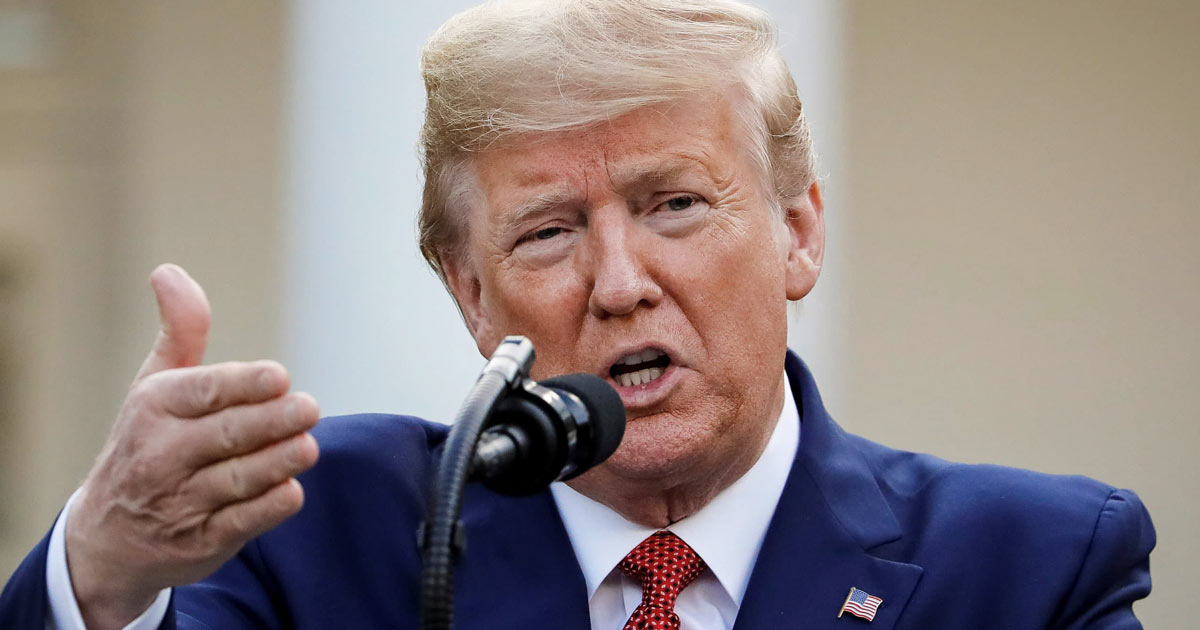President Donald Trump’s administration has issued new instructions to U.S. embassies and consulates that significantly broaden the criteria used to evaluate foreign governments for potential human rights violations.
The new criteria include policies related to Diversity, Equity, and Inclusion (DEI), speech restrictions, border enforcement, and medical procedures involving minors.
The updated guidance directs diplomats to categorize certain government-enforced DEI policies as potential human rights concerns.
According to a senior State Department official, the revised criteria are intended to address situations where policies “result in discrimination, limit equal opportunity, or restrict individual freedoms.”
The administration argues that DEI mandates in some countries have created systems that prioritize identity categories over merit and equal treatment.
Officials say the new standards reflect the administration’s commitment to opposing employment practices or government policies abroad that treat citizens differently based on race, gender, or other identity classifications.
New Criteria for the Human Rights Report
Under the updated rules, embassies will now be required to flag several categories of policies as human rights issues, including:
• Government subsidies for abortion and the “total estimated number of annual abortions.”
• Medical procedures performed on minors for the purpose of gender transition, described as surgeries or treatments “to modify their sex.”
• Government facilitation of mass or unauthorized migration through their territory into other nations.
• Criminal investigations, arrests, or official warnings issued for speech: A reference to speech-related laws adopted by some European governments to regulate online content.
A senior State Department official said the policy shift is intended to “change the behavior of governments” by clearly identifying policies the United States considers inconsistent with fundamental rights.
Deputy spokesperson Tommy Pigott said the administration intends to confront “new destructive ideologies” that, in its view, “have given safe harbor to human rights violations.”
“The Trump administration will not allow these human rights violations, such as the mutilation of children, laws that infringe on free speech, and racially discriminatory employment practices, to go unchecked,” Pigott said.
Foreign Policy Implications
The changes represent a significant departure from how previous administrations evaluated human rights.
For decades, the State Department focused primarily on political repression, civil liberties, religious freedom, and state-sanctioned abuses.
By linking identity-based employment systems, abortion policy, border enforcement, and speech regulations to human rights concerns, the Trump administration is signaling a new approach that could reshape U.S. relationships with longtime allies.
Officials note that some Western governments have aggressively adopted DEI frameworks or speech-regulation laws that differ sharply from U.S. constitutional standards.
The updated criteria mean those governments could now face diplomatic consequences or increased scrutiny in the State Department’s annual human rights report, a document often used as a basis for foreign aid decisions, trade negotiations, and alliance-building.
Criticism From the Left
Progressive lawmakers and advocacy groups condemned the changes, calling them an attempt by the Trump administration to export domestic policy fights onto the world stage.
Left-leaning officials described the new framework as “an attack on marginalized groups” and accused the administration of redefining human rights for political purposes.
The administration rejects that characterization, arguing that it is reaffirming long-standing principles such as free speech, equal opportunity, parental rights, national security, and the protection of children.
Broader Debate Over Rights and Governance
The divide reflects a broader philosophical disagreement over what constitutes a “right” in modern society.
Trump officials emphasize universal standards, such as equal treatment under the law, free expression, secure borders, and biological protections for minors, while progressive governments increasingly frame rights around identity categories or group outcomes.
The recalibration comes as many Americans have grown increasingly skeptical of DEI initiatives and identity-based governance structures, arguing that such systems can undermine fairness and equal opportunity.
The administration’s new approach signals that those domestic concerns are now influencing U.S. foreign policy as well.
As the updated human rights review process rolls out across embassies, the move is expected to reshape U.S. assessments of Western European nations in particular, where DEI mandates, speech regulations, and expansive gender-policy frameworks have become embedded in government institutions.

Our comment section is restricted to members of the Slay News community only.
To join, create a free account HERE.
If you are already a member, log in HERE.